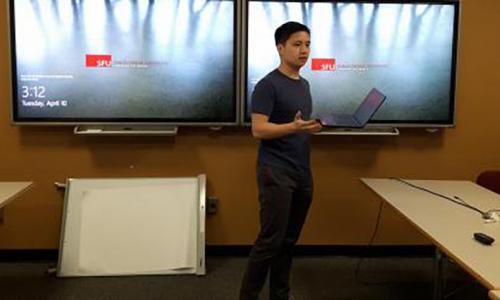
"It's not about loving your job; it's about loving yourself in your job."
This great piece of insight was given to me by a student recently, who had been given the advice from her father. I regularly ask students to solicit honest feedback from people close to them, and it's gems like this that affirm to me the value of the exercise.
This particular bit of wisdom got me thinking - not for the first time - about the "find a job you love" mentality that so permeates our affluenza-ridden society.
Somehow, we've created an ideal under which all of our most important values must be fulfilled by the job we do. Anything less tends to be viewed as "just a job." The result is predictable: a bunch of unsatisfied people who think they should be in more fulfilling jobs.
A close friend of mine (I'll refer to her by the pseudonym Sienna) has experienced something similar to this, so I'd like to share her story (many thanks to Sienna for consenting to having her story shared here!).
Story Time
After an undergraduate experience characterized by uncertainty and anxiety, Sienna successfully completed her bachelor's degree in linguistics, only to arrive at an all-too familiar question: What now? Lacking the confidence necessary to pursue a graduate degree at that time, she set aside possibilities like becoming a speech therapist, and sought advice to help with her decision. Sienna (like many of the students I've worked with) professed to have a difficult time making these kinds of decisions, with her typical process being characterized by long periods of over-thinking followed by last-minute impulse decisions.
After hearing from others how they thought she would make a great teacher, Sienna ultimately decided to pursue teaching as a career, despite feelings of unease and high levels of stress throughout her training. Regardless, she persisted through the program, and began working as a teacher-on call shortly thereafter. Sadly, whatever illusions she had held onto about teaching as an appropriate career choice for her had by that point been long since dispelled. To Sienna, who placed high value on task completion, a tangible sense of reward, a high degree of independence and control, and a preference for one-to-one interactions, teaching was a source of constant anxiety and exhaustion, not the satisfaction others had predicted.
So, she left teaching behind. Over the next few years, Sienna held a few clerical and administrative positions, but never felt completely fulfilled in her work. One possibility, however, that she had thought about many times before started making more and more sense as time wore on. After reflecting on how much she enjoyed a previous part-time job as a courier, she came to an important decision. Sienna applied to become Letter Carrier with Canada Post.
If teaching was antithetical to Sienna's professed values, delivering mail seemed to fulfill them: Task completion. Immediate sense of reward. Complete independence and control. Small but meaningful one-to-one interactions. Not to mention a love of being outdoors. What a good fit!
And that is where Sienna finds herself today, as an excited new Letter Carrier with Canada Post.
Still, while most have nothing but happiness for this development, it's an unfortunate likelihood that some of Sienna's family members will view her newest career decision as representing a loss of potential, given her two university degrees.
Love What You Have - Yourself
It's this last part of Sienna's story that represents the ideal that we've internalized. In our lifelong quest for improvement, or as Alfred Adler would call it, our "striving for superiority," any clue that we can do or be better scratches at our subconscious, slowly eroding our self-worth. This often results in a feeling of being lost, aimless, or lacking meaning. The faulty bit of logic comes in when we start to assume that all of our life's basic values and goals have to be fulfilled solely and completely by our job. Of course, things rarely if ever work out that way. So, we might start looking longingly towards the unknown, imagining proverbially greener grass.
How can a job that doesn't fulfill all of our life's goals possibly compete with an unlimited supply of unnamed possibilities that might?
Maybe your job doesn't give your life 100% of its meaning. Maybe it can't. But there's a good bet that there are some things about it that you like. What about the other parts of your life? Are they less significant than whatever it is you do for a paycheck? Are they less deserving of consideration when you ask yourself "from where do I derive meaning in my life?"
Of course not.
As some existentialists will argue, the better answer to the question of meaning comes not from "what you do," but from "what you be" (better understood as "who you are").
There's a reason why any serious career conversation I have with a student starts with the question "who are you?". Truth be told, I'm not interested in helping people find jobs they love. I'm interested in helping people figure out what they love about themselves, and finding ways to nurture and grow those qualities in the best environments - whether that be a job, an educational program, a new life role, or anything else.
In Sienna's case, I'd like to think that her discovery of - and more importantly her willingness to act on - her personal qualities and strengths, led her not to a place where she loves her job, but a place where she can better love herself in her job.
Wouldn't you like the same thing for yourself?
















